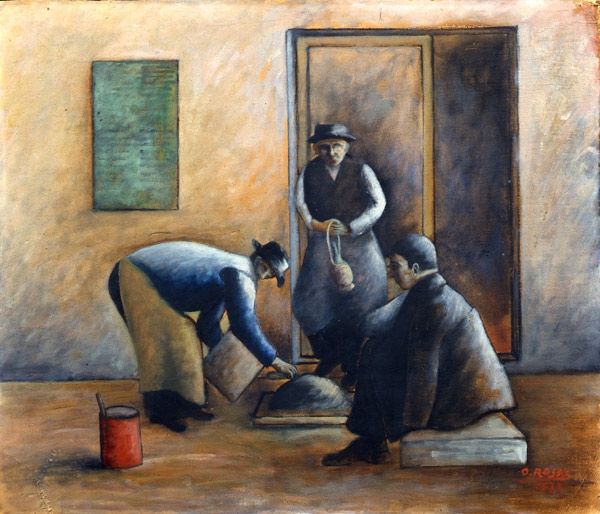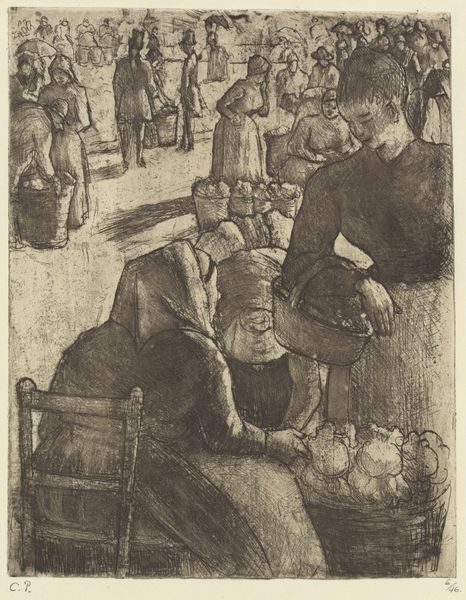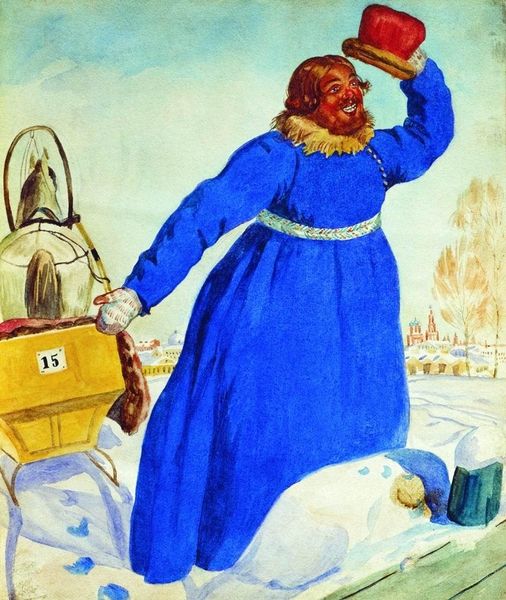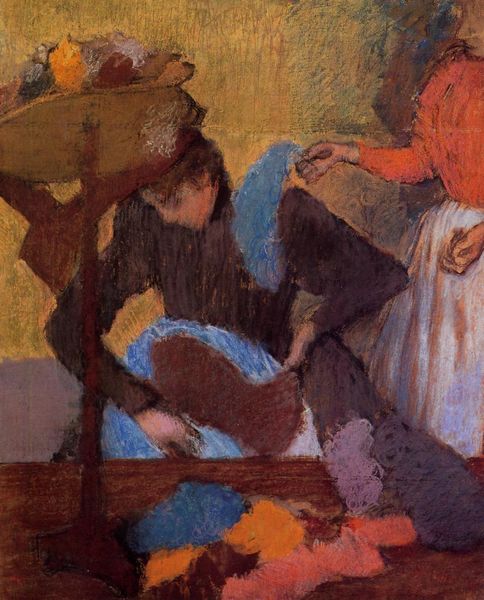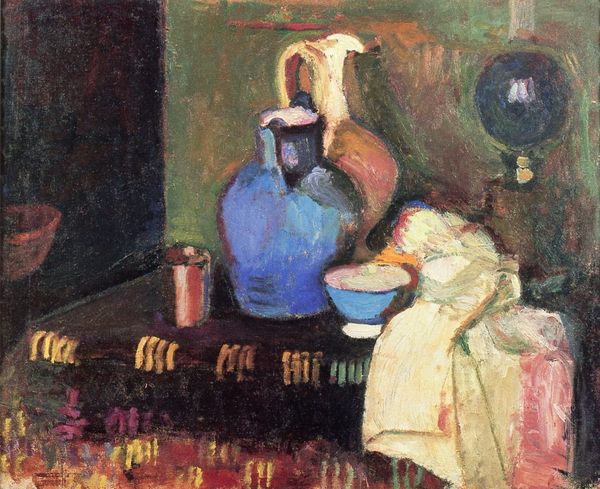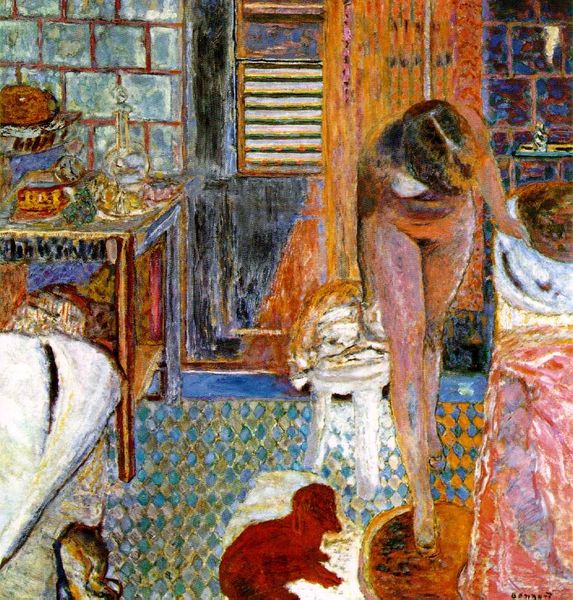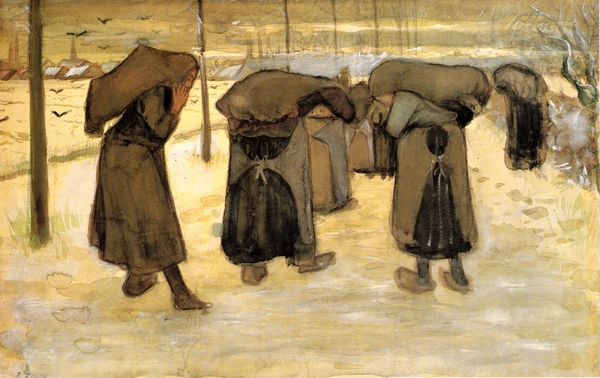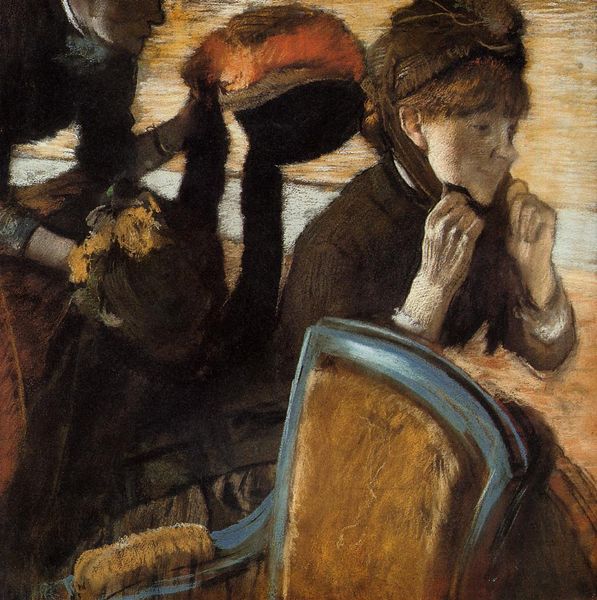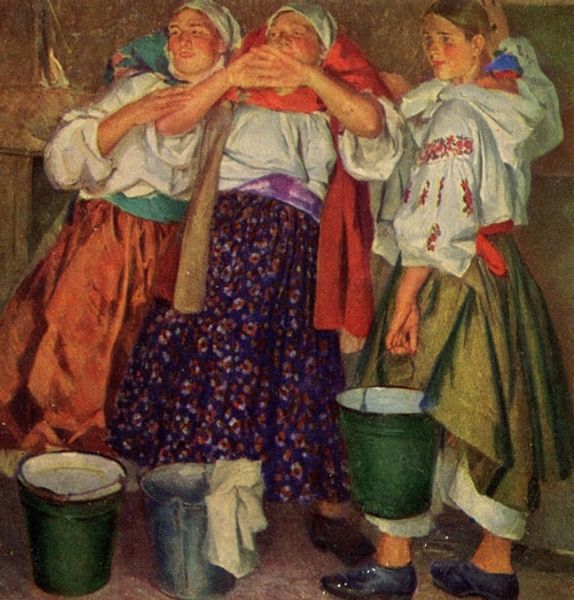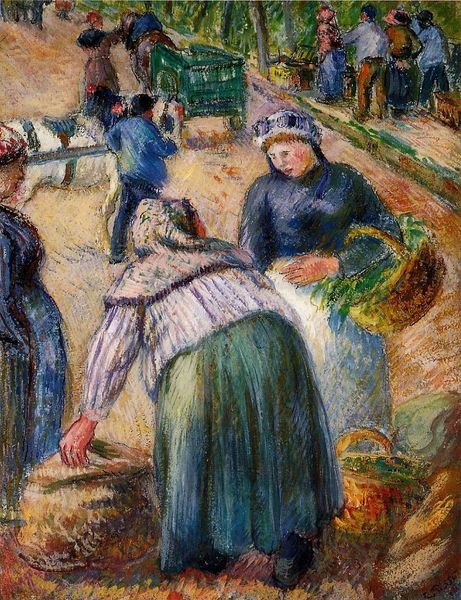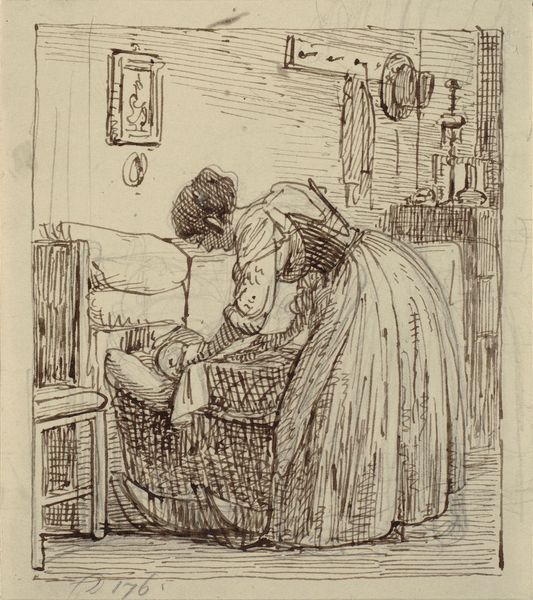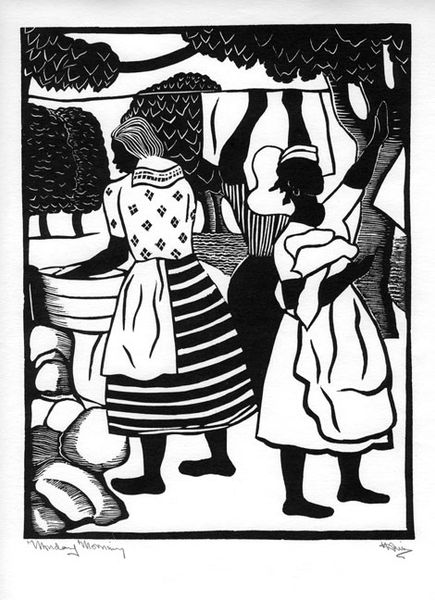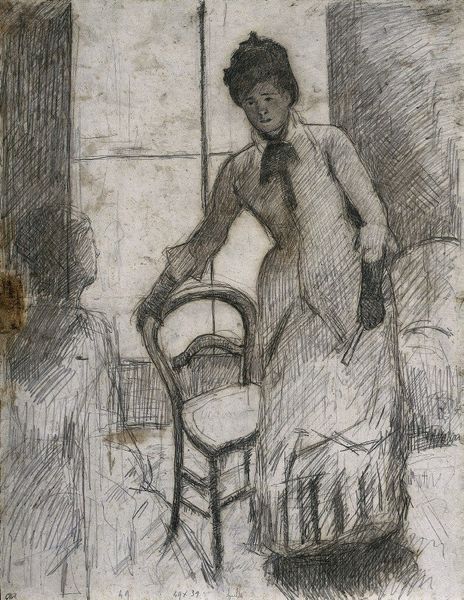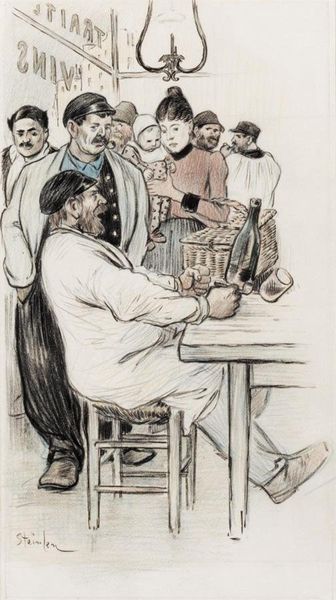
oil-paint
#
portrait
#
impressionism
#
oil-paint
#
form
#
oil painting
#
studio composition
#
painting art
#
genre-painting
#
post-impressionism
Dimensions: 81 x 100 cm
Copyright: Public domain
Paul Signac painted 'The Milliner' with oil on canvas, sometime around 1885-1890, in France. Signac was a leading figure in the Neo-Impressionist movement. Unlike the Impressionists, who captured fleeting moments, Signac and his colleagues sought to create a more scientific approach to painting, using small, distinct dots of color. Here, the divisionist technique is used to capture a scene of labor, which, in its very private and humble nature, invites the viewer to consider the labor and class divisions in French society at the time. Notice how the divisionist technique, while ostensibly scientific, also lends itself to a sense of fragmentation and alienation. The subject of the painting, a milliner, is engaged in the detailed work of hat-making. Hats, at that time, signified more than just adornment; they were markers of social status and identity. Signac’s interest in representing this work reflects a broader concern among artists of his time with depicting everyday life, but here focusing on the conditions of the working class. By researching social histories and economic records from this period, we can appreciate the artist’s social commentary.
Comments
No comments
Be the first to comment and join the conversation on the ultimate creative platform.
